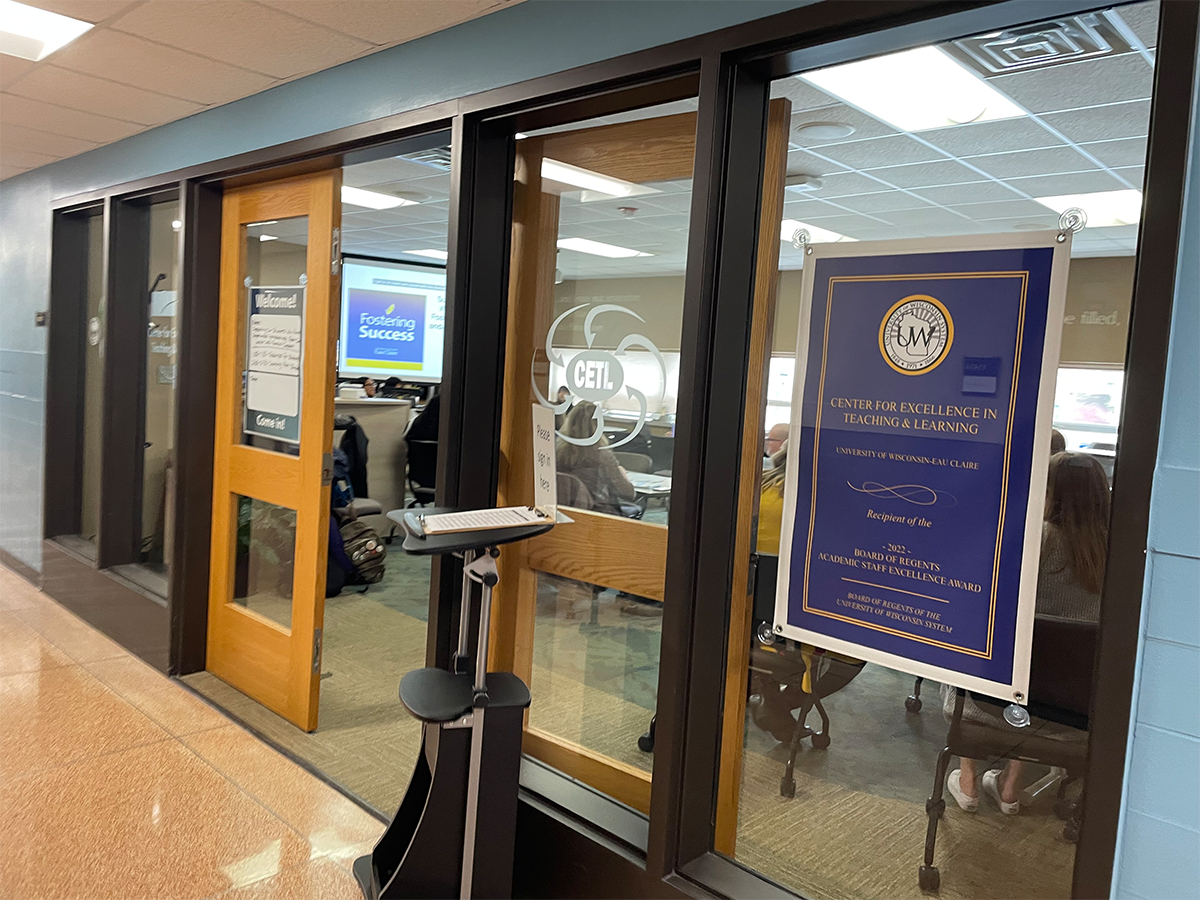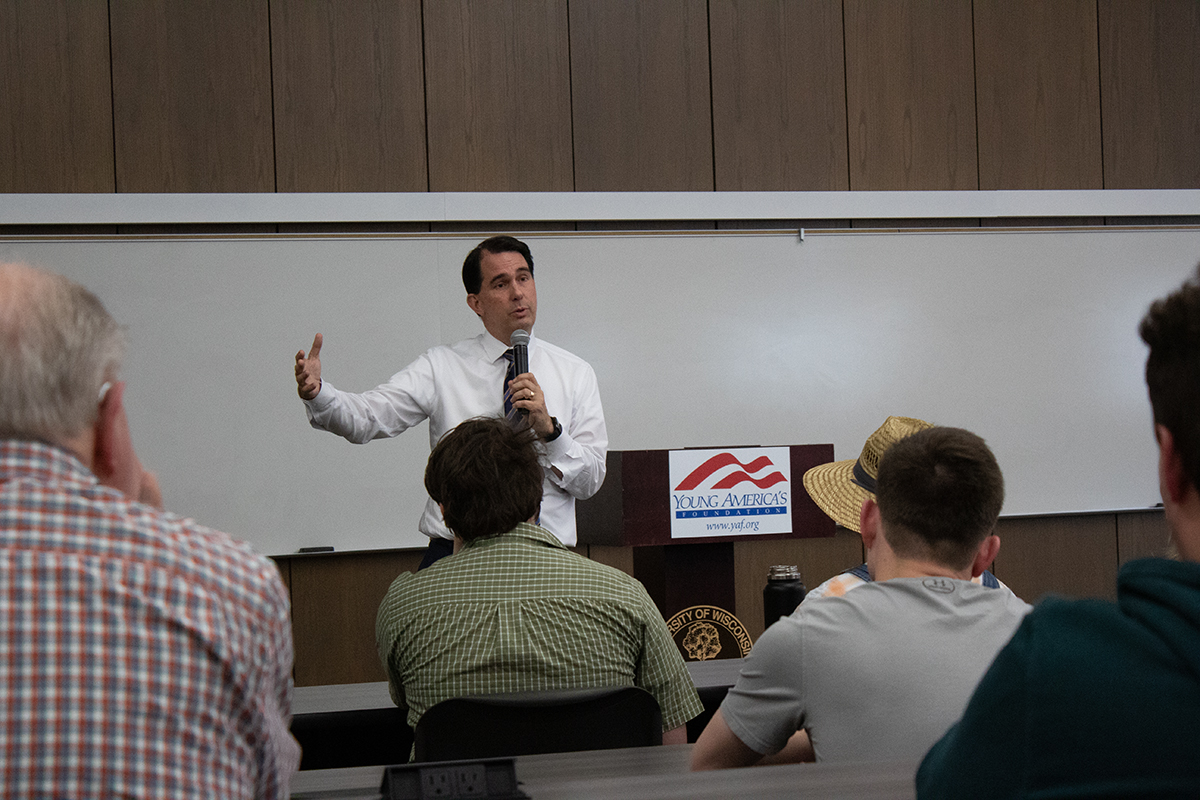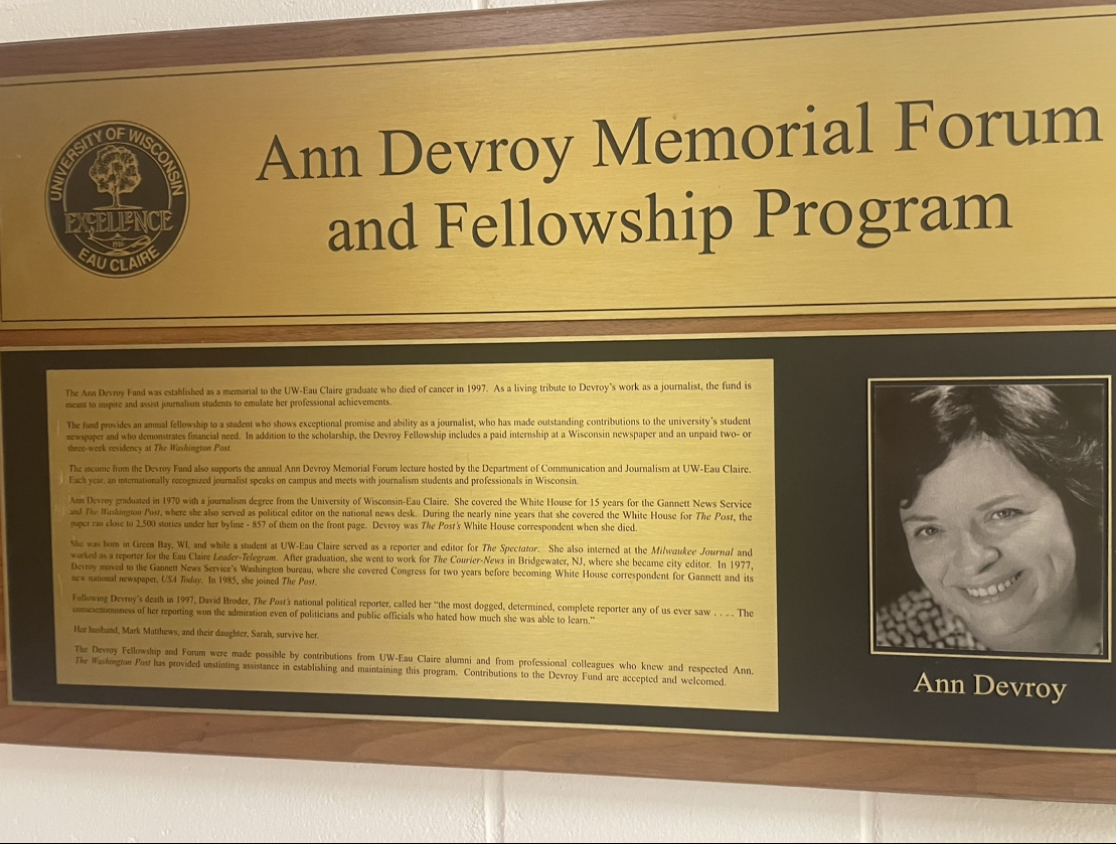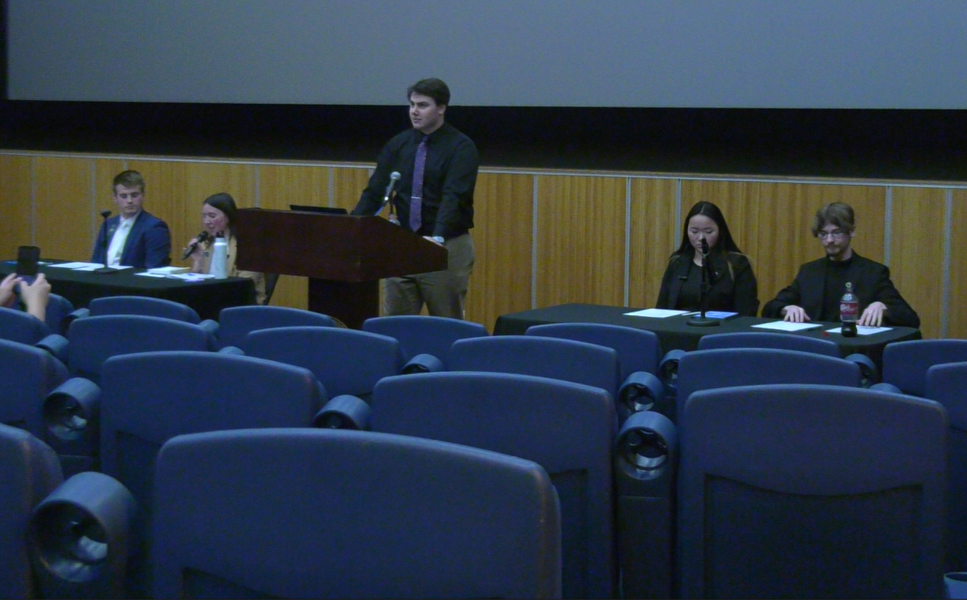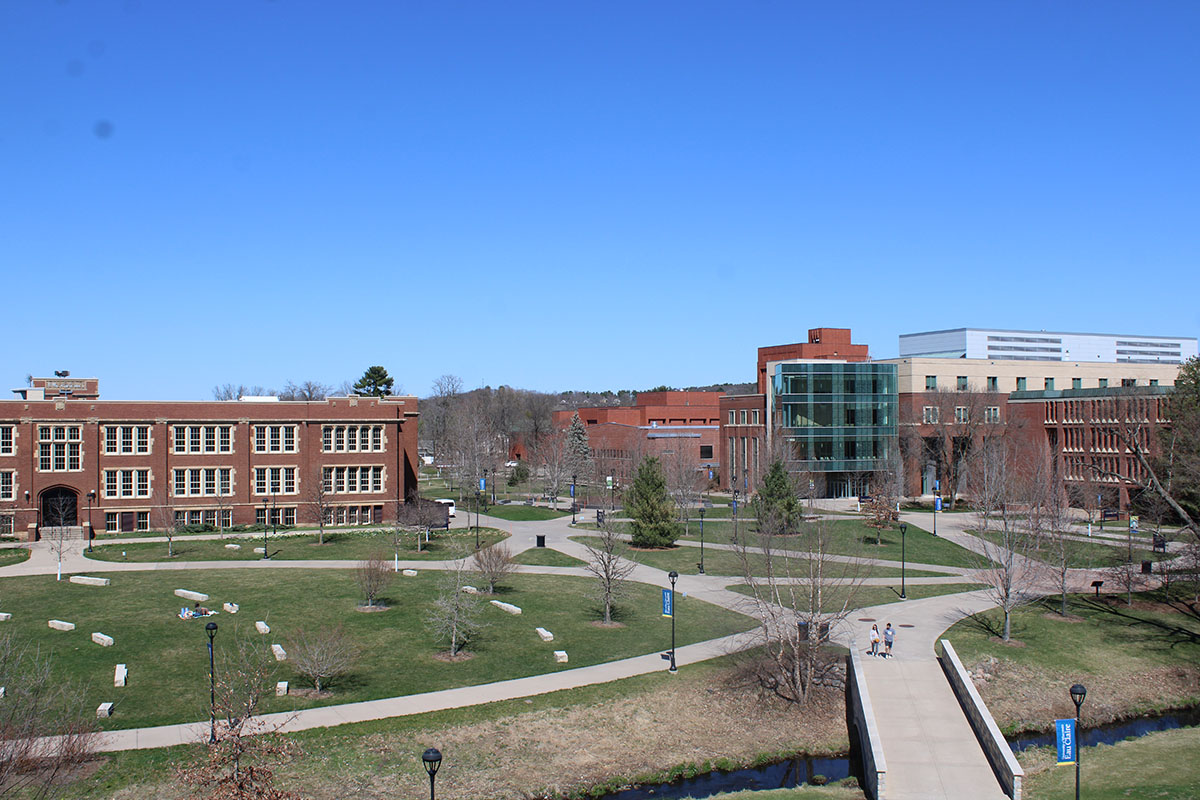While UW-Eau Claire has a composting program that saves nearly two tons of waste each week from ending up in a landfill, the City of Eau Claire itself does not have a comparable program.
Ned Noel, Eau Claire assistant city planner, said the city does not have a municipal site for composting, but that Eau Claire County operates two brush disposal sites: the Jeffers Road Brush Site in the City of Eau Claire and the Town of Seymour Brush Site near Sevenmile Creek Landfill.
Noel said the brush disposal sites are available for homeowners to bring trunks, limbs, branches and twigs from trees and shrubs.
While the brush disposal sites exist, when it comes to composting, Eau Claire County does not offer a municipal facility that accepts yard waste materials such as leaves, grass clippings or food scraps and garden refuse.
Noel said the city is looking into developing a municipal composting site as part of a sustainability plan, but one of the issues setting it back is the cost of operating a compost site.
“Staffing a municipal composting site would be part of that,” Noel said. “There would need to be surveillance to make sure illegal materials don’t get into the site. You need someone to monitor it because you don’t want meat getting in there.”
Noel said another potential cost of a composting program would be purchasing a tractor with a windrow turner, a machine that creates compost out of organic waste.
Area towns such as Chippewa Falls and River Falls offer municipal compost sites, Noel said, but Eau Claire hasn’t followed suit yet because there doesn’t seem to be enough interest in it.
The costs of a municipal composting site would be paid by citizens, so the city can’t begin a composting project unless citizens are on board.
“It needs to be a service that the public would want and be willing to pay for,” he said.
A third problem that came up was finding an acceptable site for a potential composting program, he said.
While the city doesn’t offer services beyond taking care of brush scrap, the county’s recycling program has a yard waste directory on their website of businesses and homeowners who do accept these materials.
Gregg Gannon runs a small commercial business that collects grass, leaves, pine needles, brush and other waste for disposal.
“I haul away leaves and compost it out to a farm,” he said. “The city doesn’t offer composting services, though almost every other place in Eau Claire (County) does.”
Gannon said the materials he collects are put into a pile and the farmer has an in-loader tractor that turns the scrap into mulch and puts on his land.
“Most every call I get here I feel like I have to explain not just how we go about hauling scrap, but also have to explain why the city doesn’t offer these services,” he said.
Noel said he is not sure how the cost to citizens would be implemented, but mentioned an additional fee on citizen’s garbage bills as a model other counties have used.
“The main question is if the public wants it,” he said. “Public demand drives policy. To get politicians to make it a priority, the public needs to say they want it.”
Noel said Veolia Environmental Services does have a private composting site on their Sevenmile Creek landfill which their customers can use.
Noel said he imagines the cost and a possible lack of awareness about composting is why citizens have not expressed much interest in a municipal composting site.


